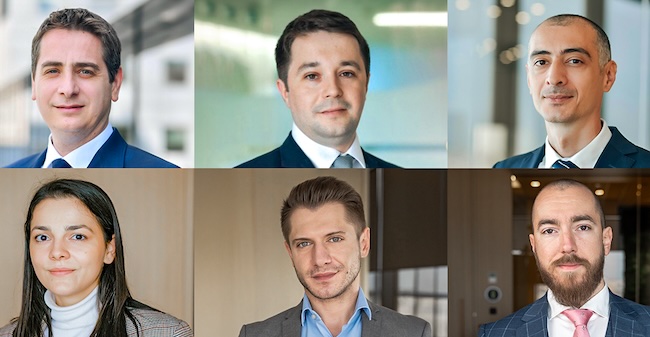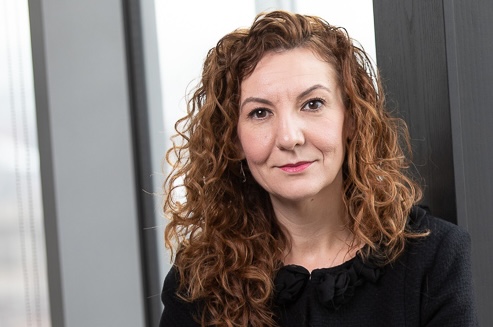Top 3 most common threats of internal fraud for Romanian companies

Companies in Romania lose impressive amounts of money every year because of fraud schemes orchestrated by or with the help of their own employees. However, the phenomenon of so-called occupational fraud or internal fraud remains a taboo subject for most top managers in 2022, according to Corporate Intelligence Agency, a company specialised in intelligence services and risk management for the private sector.
Recurring statistics at international level show that 98% of private companies have been defrauded from within in the last two years. According to Corporate Intelligence Agency, at the local level, the most common fraud schemes include private corruption, embezzlement of assets and sums of money from the company's patrimony and "large-scale" fraud, encountered mainly in the case of companies that operate warehouses or production halls.
"The phenomenon of occupational fraud can be found everywhere and that affects absolutely all companies, regardless of their size or the type of activity, the only difference being the amount of the damages incurred. Romania is no exception to this rule, but the specificity of the phenomenon at local level is given by several factors, such as the less developed organizational culture than in other countries, the lack of regular checks and control mechanisms over the activity of key employees within the companies. In addition to these factors, we are also talking about the reluctance of the local management to approach the phenomenon of occupational fraud like any other risk type, for reputational reasons or lack of knowledge about existing prevention solutions on the Romanian market," explains Gabriel Zgunea, CEO at Corporate Intelligence Agency.
The situation in Romania is similar to other CEE countries
Although the phenomenon of fraud is certainly and without exception a global one, the situation in Romania is similar in terms of dynamics and amplitude to that of other Central and Eastern European countries, such as Poland, Hungary, Bulgaria, or the Czech Republic.
If in Romania private corruption represents about 60% of all forms of internal fraud of a company, in Western Europe, the percentage drops to 40%, and the average losses recorded by a company following a type of internal fraud drops to 170,000 Euro per case, according to the report published by ACFE (Association for Certified Fraud Examiners) for 2022.
"Private corruption is still one of the most common forms of defrauding a company from the inside, and it can take the form of preferential allocation of contracts to preferred suppliers, exposing companies facing this phenomenon not only to loss of money, but also to potential harsh sanctions that can be applied by the competent authorities," says Gabriel Zgunea, CEO at Corporate Intelligence Agency.
Fraud is taking on astronomical proportions in manufacturing and warehousing
As for the various fraud schemes through which goods or sums of money are stolen from a company, their specificity lies in the relative simplicity of the method of theft (as opposed to the manipulation of a company's accounting, for example), doubled by the ease with which they can be repeated on a large scale, without alerting the control mechanisms established by the companies. These fraud schemes take on astronomical proportions when they are implemented in the warehouses or production facilities of companies.
The conflict of interest is intertwined with the abuse of power
“All of these fraud schemes that we see almost without exception with our clients have a few elements in common. Firstly, they involve an abuse of power by a key employee, whose activity in the company is not effectively checked. This abuse often takes the form of a conflict of interest, which the company could have prevented, but failed to do so," adds Gabriel Zgunea.
According to the corporate intelligence company, organizations are encouraged to deal with the phenomenon of fraud in a much firmer way, because the Romanian market offers solutions, which are becoming more and more sophisticated and closer to the standard in the West, for example, where all large companies collaborate closely with providers specialized in intelligence and risk management.
Companies that want to eliminate or successfully manage the phenomenon of occupational fraud within their organizations need a reliable partner that has both the right expertise and experience with such projects.
Fraud can be eliminated through a strategic prevention system
"Our services present undeniable advantages, given that we, as a company specialized in Intelligence and risk management services, often have legal possibilities that an employer, for example, does not have. We are talking here about concrete ways to prevent conflicts of interest, ways that are much more effective than a simple annual declaration of conflicts of interest or the specific investigations we carry out in order to check new contractual partners or key employees. In addition, we work on the basis of a carefully prepared risk analysis through which we analyse in time the vulnerability to fraud for our clients, with the aim of eliminating as much as possible potential security breaches and fraud opportunities," adds Gabriel Zgunea, CEO at Corporate Intelligence Agency.
Regardless of the fraud schemes that we see in Romania at every step, the principle recommended by the company is always the same: risk or fraud prevention are a lot better than risk or fraud management, in the sense that a fraud prevention system strategically thought out and adapted to the business model of each company is the first step in eliminating internal fraud within private sector organisations.
Last, but not least, the costs that the development and implementation of such a prevention system are substantially lower than the costs associate with an actual fraud case - and here we are considering not only the financial losses, but also the reputational losses and potential harsh sanctions that can be applied to companies that fail to prevent this phenomenon.






